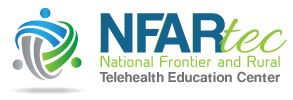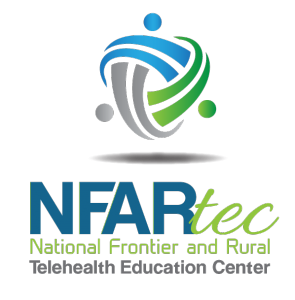Individuals entering recovery for substance use have shown a high prevalence of malnutrition, diets poor in nutrient quality, fatigue, low activity levels, trouble sleeping and other health related concerns that directly impact their ability to focus on treatment plans and subsequently contribute to relapse. Early health interventions such as basic nutrition education are critical during this period and can promote a better quality of treatment with greater possibility of successful outcomes.
These health-related concerns are further exasperated in women who also demonstrate weight concerns during recovery, body dissatisfaction, dieting, bingeing, and use of compensatory behaviors for weight loss. Women are prone to eating pathology as a form of self-medication resulting in distinct co-occurring conditions and can further trigger relapse. Currently, women’s involvement in correctional and substance use disorders (SUD) treatment systems is rapidly outpacing men. Most recovery programs are based on gender-neutral services, meaning they were designed with men in mind. Specifically, these programs often address why men use drugs and alcohol and how to reduce recidivism with little emphasis placed on the treatment needs of women. This is especially worrisome for women in correctional or treatment settings with stimulants as a primary drug of choice. Statistics demonstrate that women make up more than half of the clients treated for methamphetamine and other stimulants in most substance use treatment programs. In one study as many as five times the percentage of females than males attributed initial methamphetamine use to a desire to lose weight and more females than males reported using stimulants to get more energy.
This Enhanced Professional Learning series will address these core issues related to improving treatment outcomes as well as concerns unique to female treatment clients in comparison to their male counterparts. Topics include weight and energy as a driving mechanism to use drugs, triggers for relapse, co-occurring conditions, psychosocial needs, physical activity and dopamine, social media, “fat” internalization, electrolyte imbalance, metabolic changes during drug use and recovery, self-medication, and disordered eating patterns. Resources and programs such as the Healthy Steps to Freedom, a gender-responsive curriculum designed to augment and enhance existing treatment services will be shared and available for implementation.
WHEN:
Weekly sessions offered on the same day and start time between August 1 and September 19, 2023. Day and time will depend on your location. Please locate your local time zone in the table below for your weekly start time.
| Location | Start Date | End Date | Weekly Start Time |
|---|---|---|---|
| California/Nevada | Tues, August 1 | Tues, September 19 | 3:00 pm PDT |
| Arizona | Tues, August 1 | Tues, September 19 | 3:00 pm MST |
| Hawaii | Tues, August 1 | Tues, September 19 | 12:00 pm HST |
| Pago Pago, American Samoa | Tues, August 1 | Tues, September 19 | 11:00 am SST |
| Koror, Palau | Wed, August 2 | Wed, September 20 | 7:00 am PWT |
| Hagåtña, Guam | Wed, August 2 | Wed, September 20 | 8:00 am ChST |
| Saipan, CNMI | Wed, August 2 | Wed, September 20 | 8:00 am ChST |
| Palikir, FSM | Wed, August 2 | Wed, September 20 | 9:00 am PONT |
| Majuro, RMI | Wed, August 2 | Wed, September 20 | 10:00 am MHT |
OBJECTIVES:
- Understand the role of healthy eating and physical activity in recovery and learn approaches to promote nutrition, decrease sedentary activity and provide alternatives to dieting
- Recognize symptoms specific to women that are linked to substance use, relapse and related co-occurring disorders
- Understand the prevalence of body dissatisfaction and exposure to thin-ideals and their implications in the treatment setting for women in recovery
- Understand the prevalence of eating pathology and weight concerns and their implications to treatment and relapse prevention
- Identify common ways women self-medicate through caloric restriction, dieting, compensatory behaviors and energy supplements and their impact on substance use addiction
- Demonstrate ways to incorporate health-related education and gender-responsive life skills to augment existing treatment
PARTICIPANT COMMITMENT & EXPECTATIONS
- Access to appropriate technology to utilize Zoom videoconferencing platform (internet connection, webcam, laptop/tablet, speakers and microphone)
- Attend a one-hour online Orientation on August 1 (refer to chart above for scheduled dates/times in your time zone)
- Commit to 8-weeks of online training for 1.5 hours weekly from August 8 – September 19, 2023
- Complete weekly self-study learning activities
TRAINER(S)/FACILITATOR(S):
- Annie Lindsay, PhD
THERE IS NO COST TO PARTICIPATE:
The first 35 registrants will receive a Pacific Southwest ROTA-R waiver that covers the $450 cost to participate. Once the 35 spots have been filled, registration will be closed.
PLEASE NOTE:
Registrants enrolled in this series are required to attend the orientation and Week 1 sessions. If you cannot attend these sessions, you will forfeit your attendance. In addition, it is expected that participants will have access to the appropriate technology by Week 1 to fully participate and be on camera at least 90% of the time. This is not a webinar series and active participation to gain/improve skills are required.
Due to limited enrollment, if you cannot commit to the full participant requirements, please defer this online training series opportunity to others. Registration is not transferable to another person.
CONTINUING EDUCATION:
The series has been approved for a total of 18.5 contact hours (17.5 hours content instruction and one hour orientation session) through the National Association for Addiction Professionals (NAADAC), International Certification & Reciprocity Consortium (IC&RC), and the National Board for Certified Counselors (NBCC) ACEP No. 6492. No credit will be awarded for non-attendance or partial attendance.
The knowledge and skills learned should be applied within the framework of any applicable Operating and/or Credentialing regulations in your State of practice.
QUESTIONS:
Please contact the Pacific Southwest ROTA-R at psrota@casat.org or by phone at 775-784-6265.




